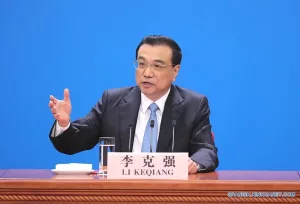On the 8 of October, Riyadh, Saudi Arabia opened its doors to scholars, students, professors, and diplomats coming from all over the world to attend the second-ever Middle East and North Africa Climate Week. In collaboration with the UN and three of its branches: The United Nations Development Program, United Nations Environment Program, and United Nations Climate Change the conference was packed with workshops, talks, and activities giving leeway for minds from all over to together face the challenges of climate change. Not only was it about challenges, but the many opportunities that the MENA region is exploring were discussed.
What is the pivotal role of youth in today’s society?
The conference made sure to point out the important role that youth has to play. It accomplished this by extending invitations to numerous universities, spanning from George Washington University in Washington, D.C., USA, to IE University in Madrid, Spain, and even the Biological Sciences Institute in Malaysia.
In the spirit of amplifying the voices of the youth, there were dedicated sessions titled “Youth Sessions” covering a variety of topics, encouraging diverse questions and eliciting answers from the students in the audience. It was emphasized that the Kingdom of Saudi Arabia is keen on demonstrating that the youth represent an opportunity. As conveyed, “Young people play a crucial role in course correction.” Their presence is significant, and the key to effecting change lies in understanding their backgrounds, continuously fostering their efforts, and demonstrating the relevance of their work.
What were some of the topics that were discussed?
A recurring theme throughout all conference events was the discussion of renewable energies, encompassing various forms, and outlining the Kingdom’s plans for their utilization. It plans to generate 50% of its power from renewable sources by 2030. In achieving this, the country has great ambition to supply the global economy with clean hydrogen. The Ministry of Energy of Saudi Arabia expressed how there is still a long journey ahead but are not planning on giving up. In 2019, there was no market for green hydrogen and yet they are now working on what will become the largest green hydrogen production facility in the world once operational.
Another point that was touched upon was that of transportation and how to transition into more sustainable societies. There is a race in thinking of alternatives and solutions on how to face the challenges that are resulting from climate change. There are climate hazards from all around the world that hamper transportation, this has a spillover effect and also limits the food and energy that societies have. An alternative to transportation that is being considered is constructing underground highways. This would result in increased energy efficiency by reducing the heat energy loss that occurs in the above-ground systems.
What is the “Diriyah Gate” Project?
In a session, with Her Royal Highness Sara Al Saud and Jerry Inzerillo, CEO of Saudi Arabia’s Diriyah Gate Development Authority and with five decades of experience in the hospitality sector, the matter of tourism and the project of “Diriyah Gate” was discussed. Diriyah is set to be a complex landmark based on sustainability, wellness, culture, and climate resilience. Enzerillo stated, “You wanna start from a source of pride, this source is originally the earth.” He went on to explain how we must give back to the earth and so his ambitious project of Diriyah Gate will be based on what is fundamental to a human. This is their well-being, their social component, health, and sport.
Enzerillo defends how tourism is the ultimate ambassador of joy and culture. A quote that he wanted everyone to take away from his speech was that “a tiny seed carries the promise of the mighty tree.” He wanted everyone to think about how their small impact may lead to a bigger cause.
What were the concluding remarks of the conference?
Notably, the conference’s last point of emphasis underscored the growing importance of environmental and social factors within corporate operations. In today’s landscape, non-compliance with ESG (Environmental, Social, and Governance) principles by many major corporations could potentially pose an ultimatum for both investors and employees.
To conclude, the MENA Climate Week served as a concise introduction to the multitude of projects underway in the Kingdom of Saudi Arabia, the broader MENA region, and numerous other countries. It united individuals from diverse areas of expertise, demonstrating that everyone can contribute to realizing a sustainable future that is not as distant as it may seem.
Phot by: MENA






